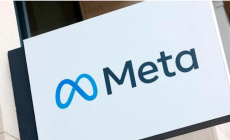Facebook rumoured to be planning electronic banking
- Posted on
- Comment
 It’s the place to update friends about your day, share pictures and catch up on the gossip.
It’s the place to update friends about your day, share pictures and catch up on the gossip.
But in the future, Facebook users could use the site to make electronic payments and save money too.
The social network is rumoured to be seeking regulatory approval to offer financial services – including electronic money and remittances – which would, for example, allow foreign workers to easily transfer money back to their families.
Facebook is seeking regulatory approval from the Central Bank of Ireland, which, if it is granted, would allow people to store money on the social network, transfer it to other users and pay for goods, according to a report by The Financial Times.
The Central Bank of Ireland told MailOnline ‘it is not commenting on the issue at the moment’, and Facebook said it does not comment on rumour or speculation.
If Facebook becomes an e-money institution, it could issue units of monetary value, stored on its site, against its own worth and this emoney could be used by people throughout Europe.
The social network is also rumoured to have approached three London startups – TransferWise, Moni Technologies and Azimo – that already offer international money transfer via smartphone apps.
While UK users may be wary of the security implications of storing money on Facebook, a move into remittances would help Facebook gain an even stronger foothold in emerging markets including India and Africa.
While Facebook has not commented on the rumours a source, said to be familiar with the details, told The Financial Times: ‘Facebook wants to become a utility in the developing world and remittances are a gateway drug to financial inclusion.’
If those in developing nations flock to Facebook, the company would boost its advertising revenues, and e-money services could become a big attraction – it would be particularly useful to users in areas without easy access to banks.
Elizabeth Cobbett, lecturer in International Political Economy at the University of East Anglia (UEA), told MailOnline: ‘The materiality of banking and finance is changing rapidly and this change is most visible in emerging markets where they do not have the infrastructure in place. So it is a clean slate for new technology.
‘This is clearly evident in Africa. Facebook wants in on the game and the huge potential market.’
She explained that there are two-and-a-half billion ‘unbanked’ adults across the globe and so the potential market is huge.
Recent research undertaken by McKinsey found that internet use in Africa is on a par with Brazil and China and therefore emoney ‘is not a crazy idea’ in emerging economies.
Dr Cobbett said: ‘Customer branch banking is not only rapidly changing in industrialised economies but is no longer a viable option for the expansion of retail banking and financial services in African countries of large unbanked populations.
‘The challenge for bankers and credit providers is to think how financial services can expand without the characteristic physical attributes of bricks-and-mortar branch banks.
‘Challenges such as varying levels of literacy, great distances, the widespread absence of formal financial services and infrastructure, lack of official identification documentation, as well as the mobility of populations, make the future of banking in Africa reliant on information technology and digital technology.
She added: ‘Technology is having a bigger impact in developing world than in the west.’
The social network announced last week that it now has more than 100million users in India, making it the company’s largest source of users after the U.S..
Facebook is not the only internet giant dipping its toe into banking, however.
China’s Tencent and Alibaba are turning their sites into mobile payment platforms in order to offer consumers an alternative to using their credit cards.
Google is also ramping up its mobile payments and wallet services, which has yet to be widely adopted by consumers.
If Facebook is authorised to have a similar arm to its business, it would need to hold €350,000 (£289,687) of capital and separate the same amount of money it issues.
It is already allowed to offer some forms of money transfer in the U.S. – but only for developers who charge users for in-app products.
The service is already lucrative for Facebook, which made $2.1billion worth of transactions from gaming apps in 2013, according to the Securities and Exchange Commission.
The company takes a fee of 30 per cent for the payments, which make up around 10 per cent of its revenues.
-Daily Mail










 (Selorm) |
(Selorm) |  (Nana Kwesi)
(Nana Kwesi)